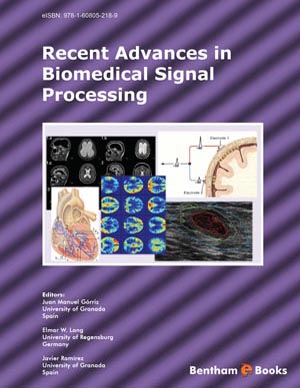Abstract
Conventional evaluation of functional image scans often relies on manual reorientation, visual reading and semiquantitative analysis of certain regions of the brain. These steps are time consuming, subjective and prone to error. In this chapter, several techniques for feature extraction and classification methods are presented as an automatic alternative to explore the images with the aim of detecting the Alzheimer’s Disease (AD) in its early stage. The huge number of voxels of a typical brain scan makes necessary to use data reduction and compression techniques as well as other feature extraction methods that allow to hold the discriminant information in lower dimensional feature vectors, solving that way the well-known small sample size problem. The extracted features can be subsequently combined with different classification techniques to define a complete Computer Aided Diagnosis (CAD) system capable to distinguish successfully between normal controls and AD affected subjects.
Keywords: Image classification, SPECT, PET, Support vector machines, Computer aided diagnosis system, Alzheimer’s disease


















